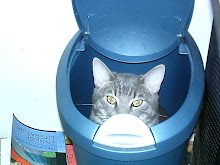Let's face it, times are tough, bank accounts are smaller, jobs are scarce, and people have cut back. However, there's one thing that people can't cut back on, and that's food. Or can they? I have always had budgetary constraints, so I've never not shopped on a budget. In my years of experience, I've learned a few tips that may help those who are just beginning life on their own, those who have never been on a budget before, or those who just want a few extra tips.
A side note is that these tips work the best when you have a large pantry and ample freezer space. Now, those are two things I don't have, so it's possible to make it work (although some day I dream of having a large freezer and pantry).
- Shop multiple stores - By shopping at more than one local store you can compare prices. Most cities or towns have at least two stores, which helps. For example, I used to buy lettuce at Store A because it's grown locally in the Northwest, the quality is good, and the price was the lowest. You may think that you'll spend more on gas, but that's something you'll need to decide, especially if you shop ads you may save more than you think.
- Sign up for bonus programs - Most grocery stores offer rewards systems, points, or cards. Some stores let you redeem so many points for so much off advertised products, some stores give you rewards coupons, and some offer gas rewards. This way, the money that you're spending on food is actually helping you save money later on.
- Buy local - Buying from local farmers' markets or fruit stands does several things. Not only are you stimulating the local economy, but the fruits and veggies you're buying are fresher, which means that you're getting more nutrients and there's little to no preservatives. Also, since the food doesn't have to be shipped or stored, you'll probably pay less or at most, as much as at the grocery store.
- Buy canned and frozen veggies - Vegetable seem to cost more when they're out of season. Chances are they've probably also been sitting in storage for awhile and a lot of the nutrients are lost in that process. Canned and frozen vegetables are normally canned or frozen at the peak of freshness and full of nutrients. Also, they usually go on sale around large holidays like Thanksgiving, Christmas, and Easter.
- Shop the ads and buy what's on sale - It really helps to plan a weekly grocery list and a list of weekly meals. You can set up and plan some meals based on what is on sale in the ads. Fortunately, you don't even need a newspaper, your local grocery store probably has a website with weekly ads where you can also print out coupons. You can also get manufacturer coupons from places like CouponBug.
- Buy a lot - This may seem counter-intuitive, but you'll actually save money if you spend a little bit more here and there. For example, say that Tuna Helper is on sale 10 for $10 when it's usually $1.75. If you stock up at the lower price when you don't need the items, you won't be paying more when you need it.This is a great thing to do with items you use a lot, especially ketchup, salad dressing, soups, sugar, etc.
- Buy larger packages - It helps when you're stocking up to buy large packages, since you're usually paying more for individual packages. For example, large family packages of steaks are cheaper than two packs. All you need to do is break down the larger quantities into smaller ones once you get home. Be sure to label everything and that way you've got individual sizes at a lesser cost. This is also a good idea if you want to shop at a large membership store such as Costco or Sam's Club.
- Buy Generic - Some people may turn up their noses to things that are not a well-known national brand, but they're missing out. A lot of store brand items are actually brand names in different packaging with a different name. Some stores actually commission companies to make their products, but put a generic label on the package. This way, consumers are getting the same product without paying for a fancy name. It's definitely something that everyone should at least try. Sure, some generic products are not the same as fancy brands (like Cola vs. Coke or Pepsi), but it's something to definitely try.
- Keep a list - It's important to keep a list on your fridge (or somewhere everyone in the household can see) to keep track of the items you are almost out of. That way you can be organized and ready to stock up when that item goes on sale.
- Keep inventory - This helps especially if you have a large pantry or freezer, it is also a trick I learned from my super organized aunt. Keep a notepad or notebook in the pantry or near the freezer listing all of the contents and their expiration dates and cross off the items as you use them. This way you'll always know what you've got on hand and what you need to use up before it expires.


2 comments:
Great tips! We utilize a lot of the suggestions you made and we save a bundle. Nice post!
Post a Comment